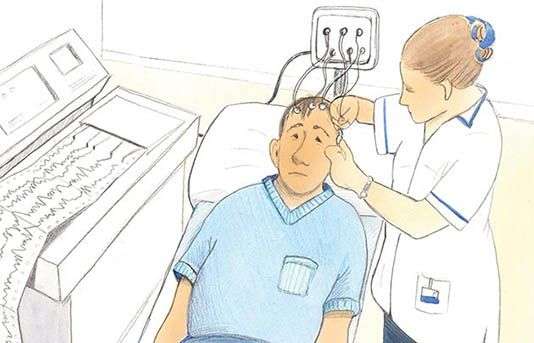Picture book could help people with learning disabilities and epilepsy

A severe lack of understanding and research into the needs of people with learning disabilities and epilepsy is placing them at risk say experts from the University of Hertfordshire.
There are currently more than 1 million people with learning disabilities in England. This group are also more likely to have additional physical and mental health problems, such as epilepsy. Figures show around 1 in 5 people with a learning disability will also have epilepsy, making it the most common neurological condition for people in that demographic.
Dr Silvana Mengoni, from the University of Hertfordshire's Centre for Health Services and Clinical Research, said: 'Given the lack of research in this area, improvements in education, communication and collaboration between people with epilepsy and learning disabilities, their carers and their clinical teams is urgently needed.'
Healthy and independent
In the general population people with epilepsy are encouraged to self-manage their condition, carrying out activities such as taking medication on-time, getting enough exercise and seeking help when needed. For them, it is a major and successful part of them staying as healthy and independent as possible. But for those that also have a learning disability, this level of self-management isn't always expected by clinicians or carers and therefore the additional support they need isn't always available.
For example, research shows that whilst just 30 per cent of people in the general population with epilepsy have seizures when taking medication, this jumps massively to 70 per cent for those with a learning disability, highlighting the need for additional support.
Dr Mengoni added: 'For people with both learning disabilities and epilepsy, seizures can be severe, frequent and difficult to control with medication. As a result, epilepsy can have a significant negative impact on their day-to-day lives, and can result in increased hospital admittances, health and social care costs and mortality.'
A recent study by Dr Mengoni and colleagues suggests one way to aid these patients is to use a simple picture book to help themselves better understand epilepsy and the importance of self-managing the condition, as well as improving communication with carers.
Improve quality of life
The Wordless Intervention for Epilepsy in Learning Disabilities (WIELD) study provided participants with a booklet called 'Getting on with Epilepsy'. Participants used the book with a trained researcher and a carer present before being asked to use it at least twice more over 20 weeks in their day-to-day lives.
The study found the booklet was received positively from the participants suggesting that there is a need for more tailored education and self-management information which is currently not being met by current practice.
Dr Mengoni said: 'There is an important need to improve communication between healthcare professionals and people with learning disabilities regarding decision-making about epilepsy management. Therefore, this booklet has the potential to provide people with learning disabilities with the skills and confidence to better manage their own epilepsy, empower them and generally improve their quality of life.'













